黃偉彥教授紀念研討會
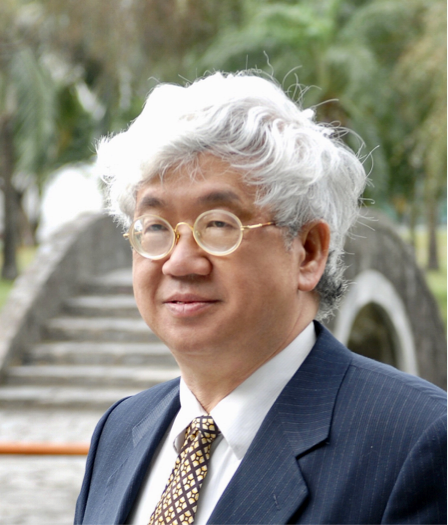
黃偉彥教授 25 Aug 1948 - 6 May 2018
本系黃偉彥教授於今年(2018)五月逝世。本系於12月1日舉辦了黃偉彥教授紀念研討會,以緬懷黃老師在物理學上的成就以及對台大物理系的貢獻。
黃老師於1948年於台灣苗栗出生,十歲時因車禍失去部分右腳而不良於行。但他不受生理缺陷的限制,勤奮向學,於1971年獲得台大物理系學士學位。黃老師於台大畢業後赴美深造,1977年獲賓州大學博士學位;1978-1981於華盛頓大學擔任博士後研究員,1981年轉至印第安納大學,並於1984年升任副教授,1988回到母校台大物理系任職正教授。黃老師回國後指導了眾多後進,並極力倡導國際合作 ,主辦多個國際會議,組織並參與了多個亞太區域學術團體的創立及運作。他並與中研院吳大猷院長合作出版了 ”Relativistic Quantum Mechanics and Quantum Fields” 一書。
1997-2001黃老師擔任台大物理系主任,期間致力於改善台大物理系體質,在任內聘入十位教授,大大提升物理系的研究能量。2000年獲得教育部學術卓越計畫,啟動台灣在宇宙學方面的研究,此外黃老師也是國家理論中心成立的重要推手之一。2004年黃老師不幸中風導致右手不便,但他積極復健,保持樂觀精神,仍努力從事研究及國際合作,編撰期刊,直至過世。黃老師堪稱是位生命的勇者,他的精神及毅力令人感佩。黃老師一生獲得許多榮譽,包括美國物理學會會士, 三次榮獲國科會研究傑出獎,以及教育部學術獎,國家講座,台大講座等等。黃老師從事研究的熱情與成就,以及推動國際合作的努力,將永遠被人們記得。
這場研討會先由本系張顏暉主任致詞,接著由中研院的鄭海揚及賀曾樸兩位特聘研究員、伊利諾大學彭仁傑教授、以及本系陳丕燊教授四位老師來報告黃老師在學術方面的研究成果。
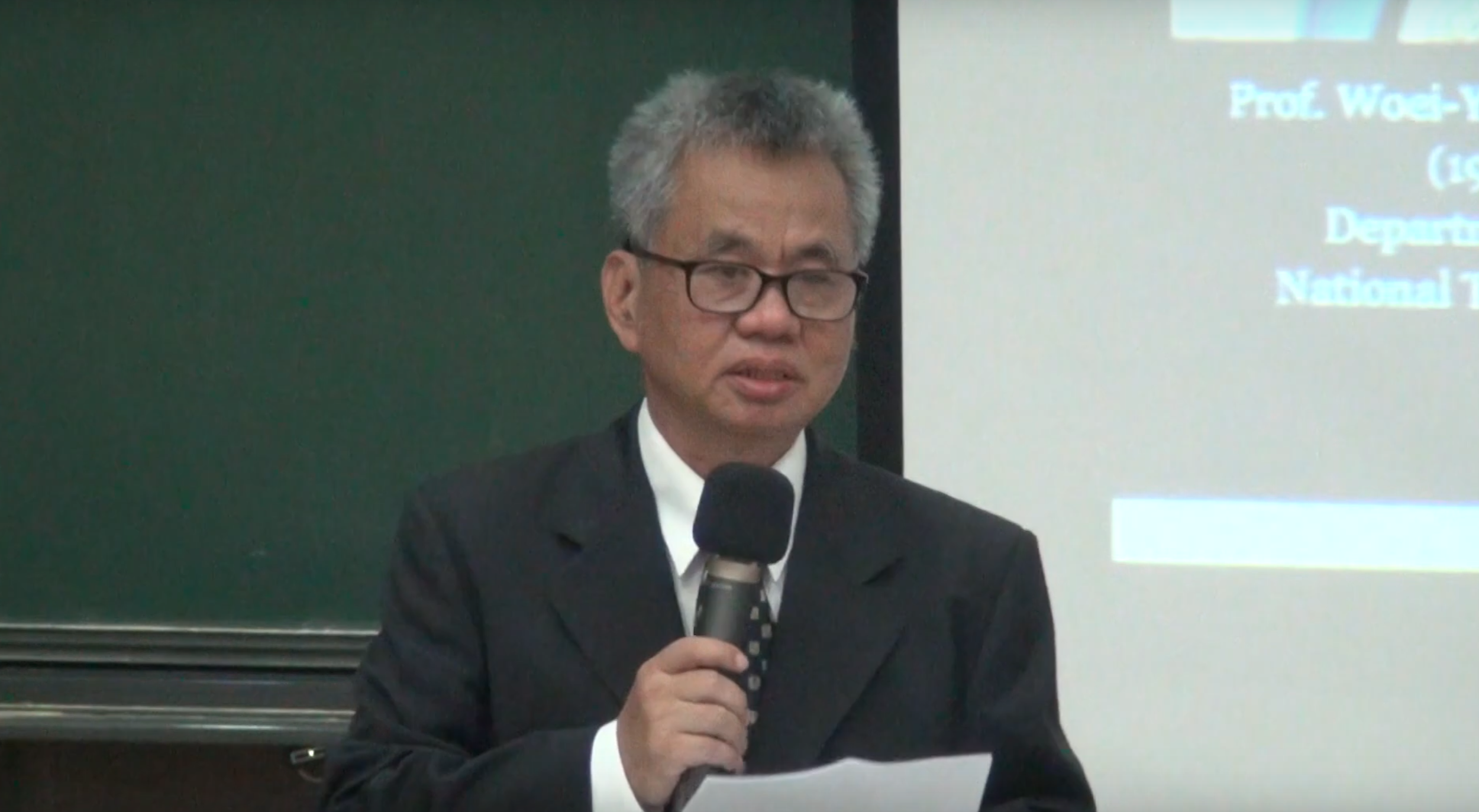
張顏暉主任 |
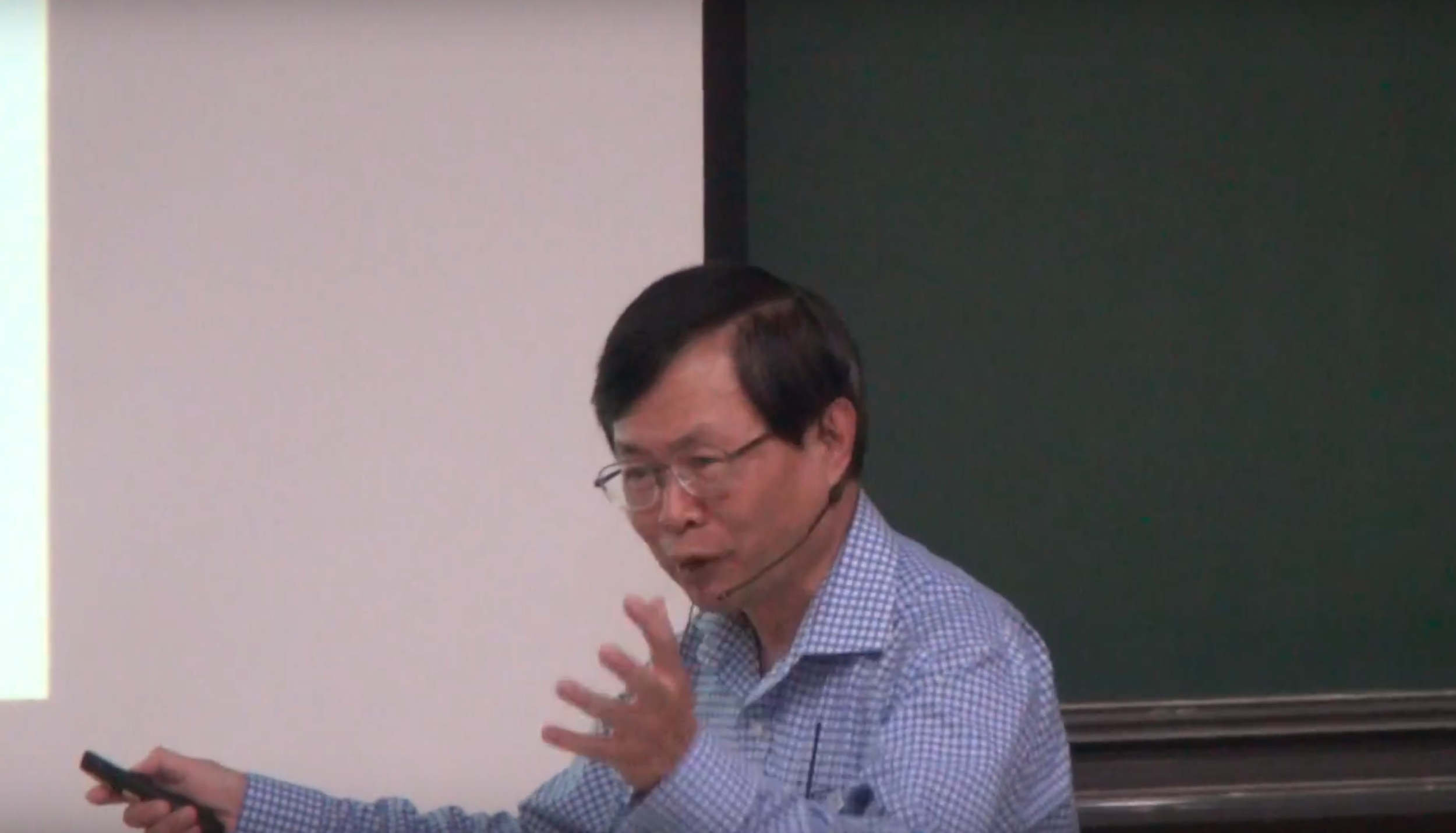
鄭海揚教授 |

彭仁傑教授 |
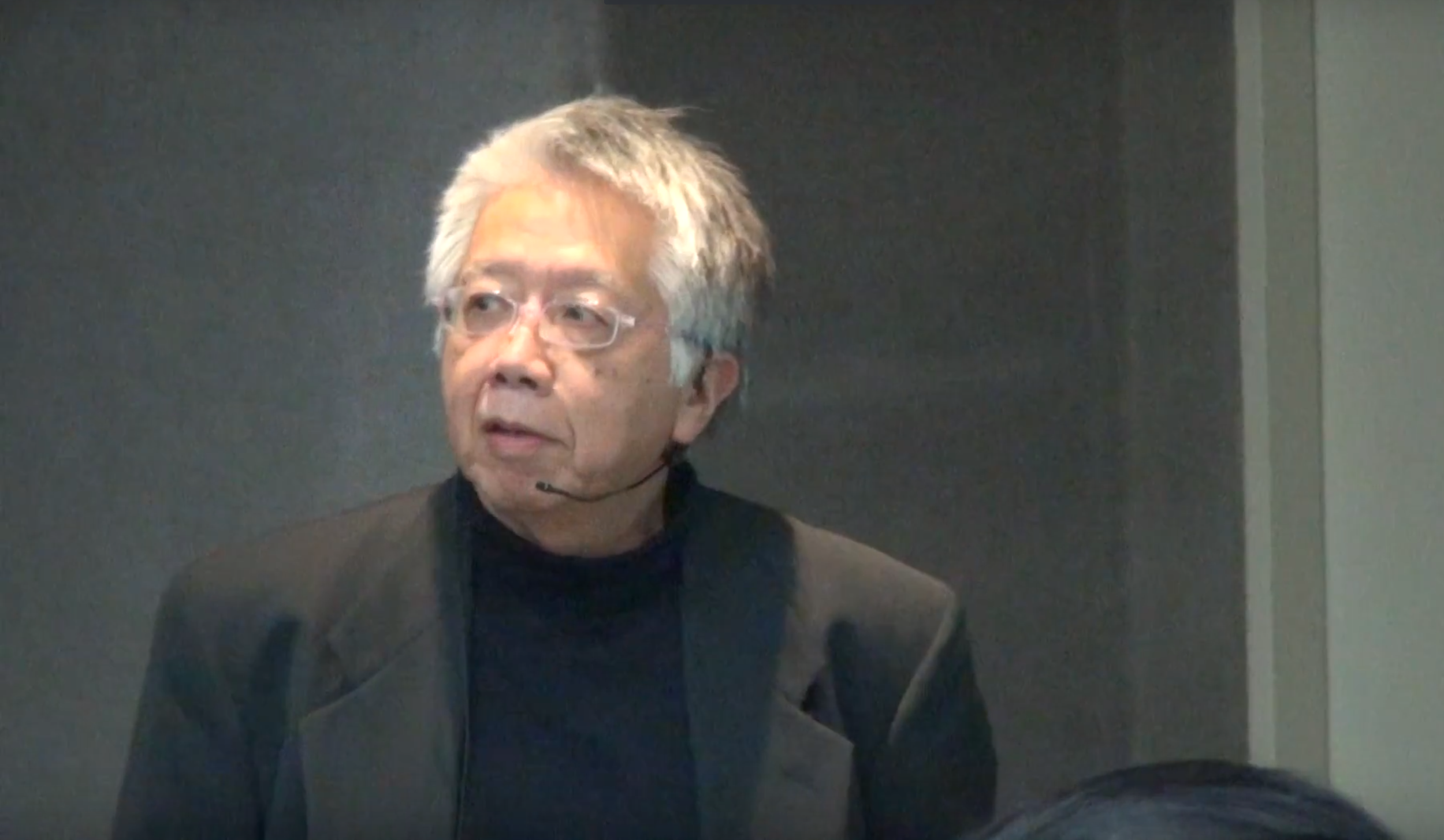
賀曾樸教授 |
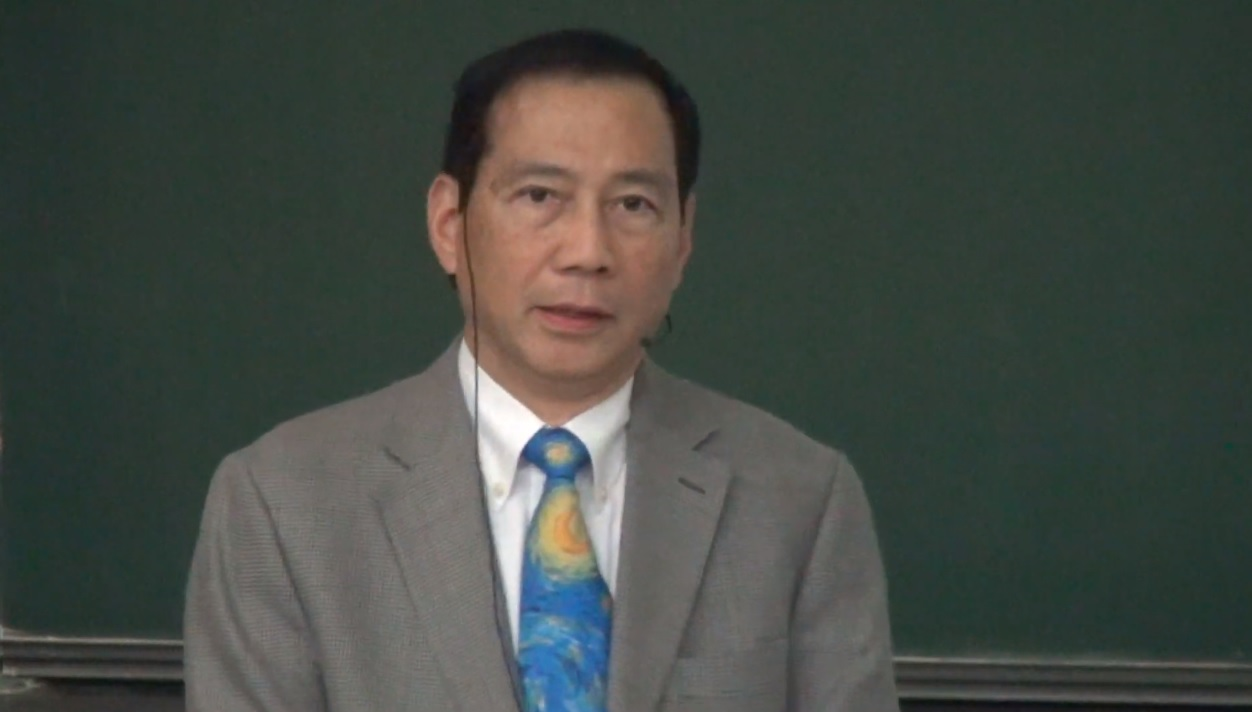
陳丕燊教授 |
接著還邀請了多位黃老師的老友,學術伙伴,包括行政院唐飛前院長,以及康乃爾大學顏東茂教授、中研院周美吟副院長、清大光電所齊正中教授、中研院張志義研究員、台大物理系侯維恕教授、美國東北大學伍法岳教授、台大物理系高涌泉教授...等等,眾人齊聚一堂,一起分享關於黃老師的種種回憶。
除了以上到場來賓之外,許多身在海外的友人,包括前中研院副院長陳長謙教授、墨爾本大學Bruce McKellar教授、美國東北大學伍法岳教授、以及黃老師的台大同窗趙建中先生,也都以影片或是書信等方式向黃老師致意。
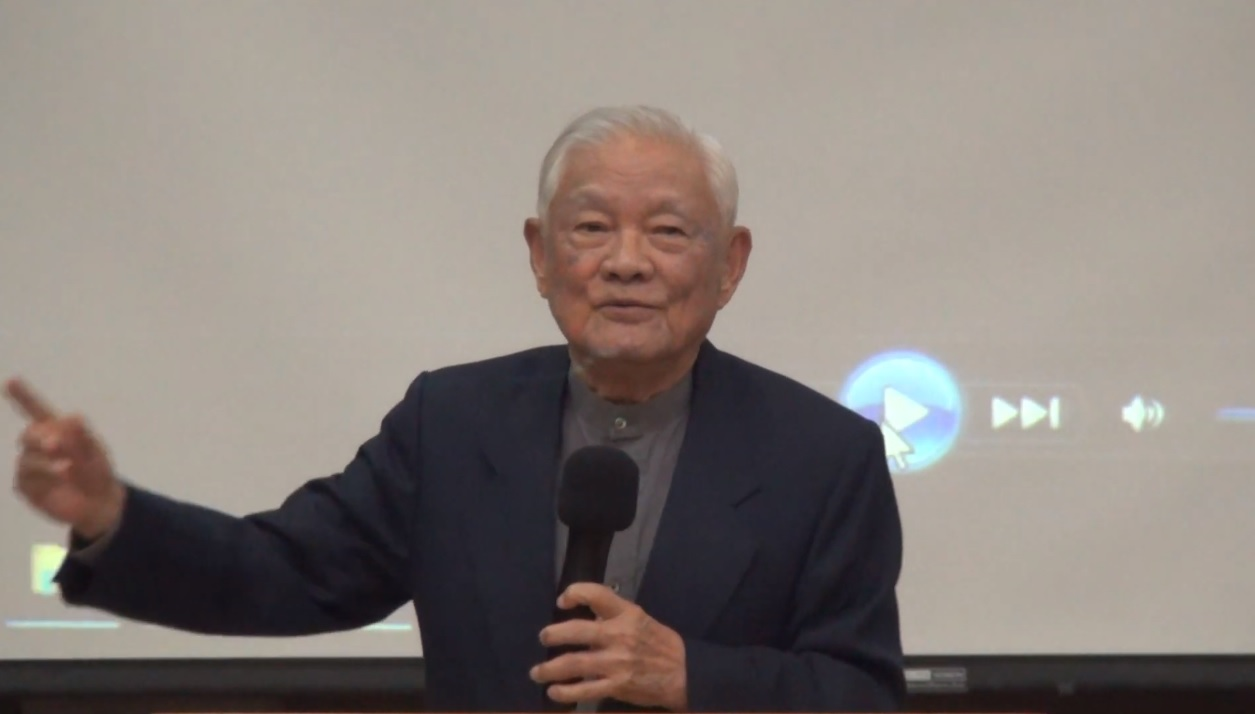
唐飛前院長 |
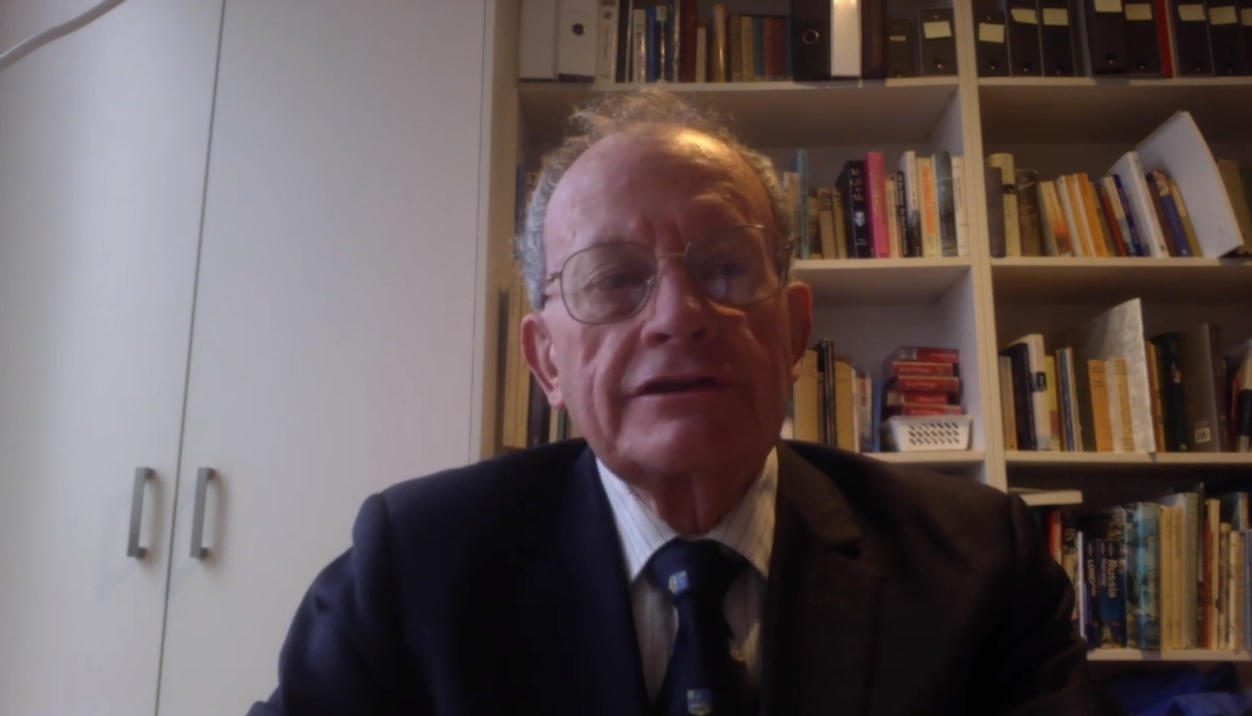
Bruce McKellar教授 |
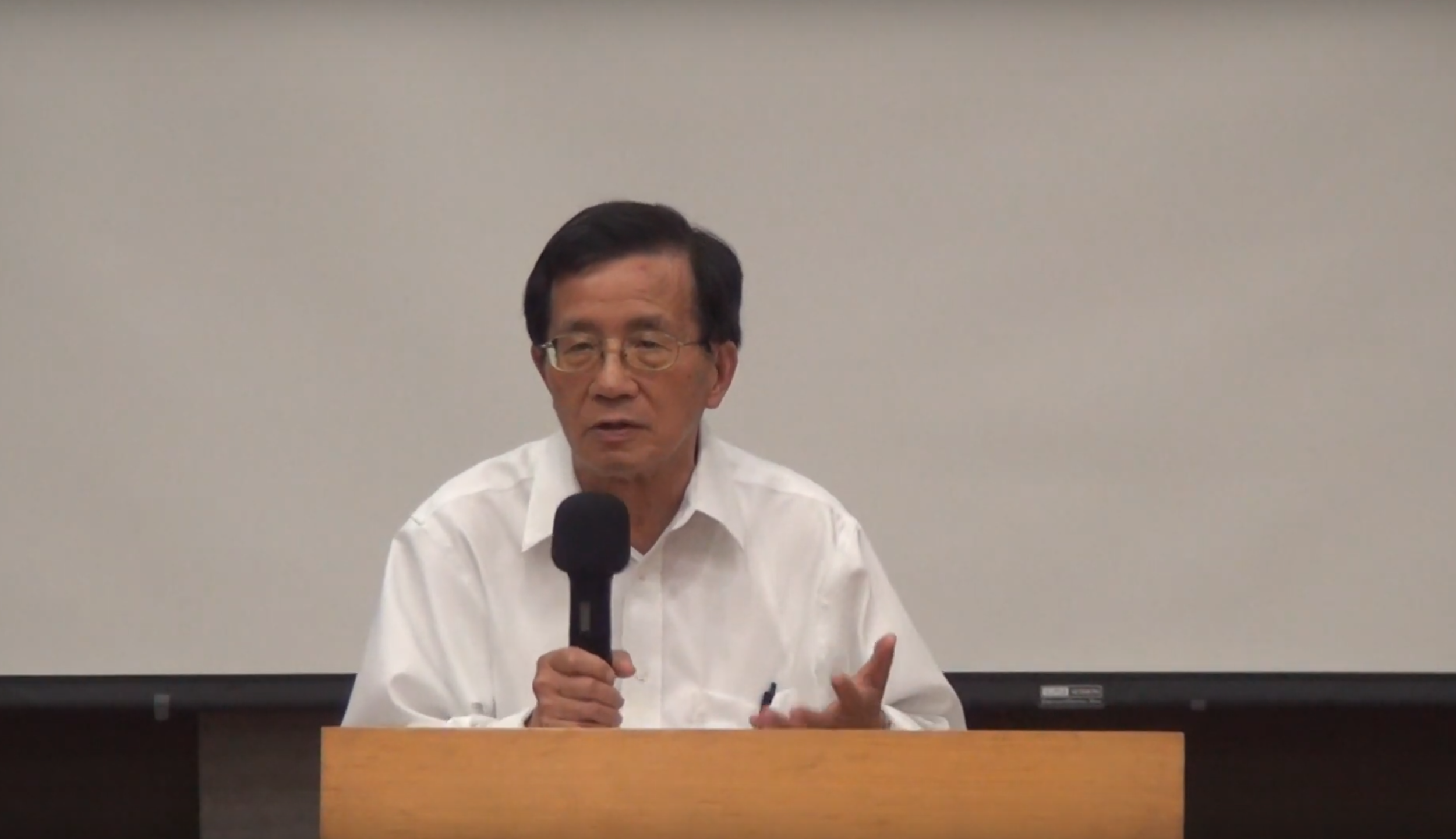
顏東茂教授 |
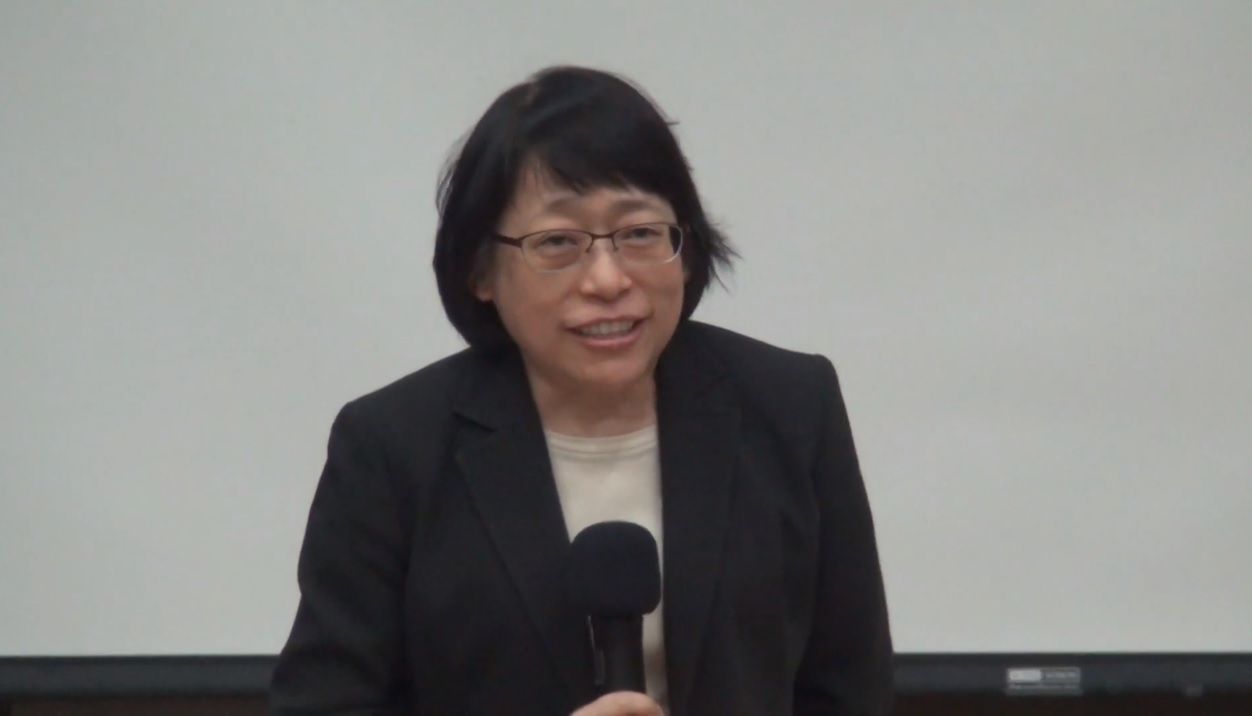
周美吟副院長 |
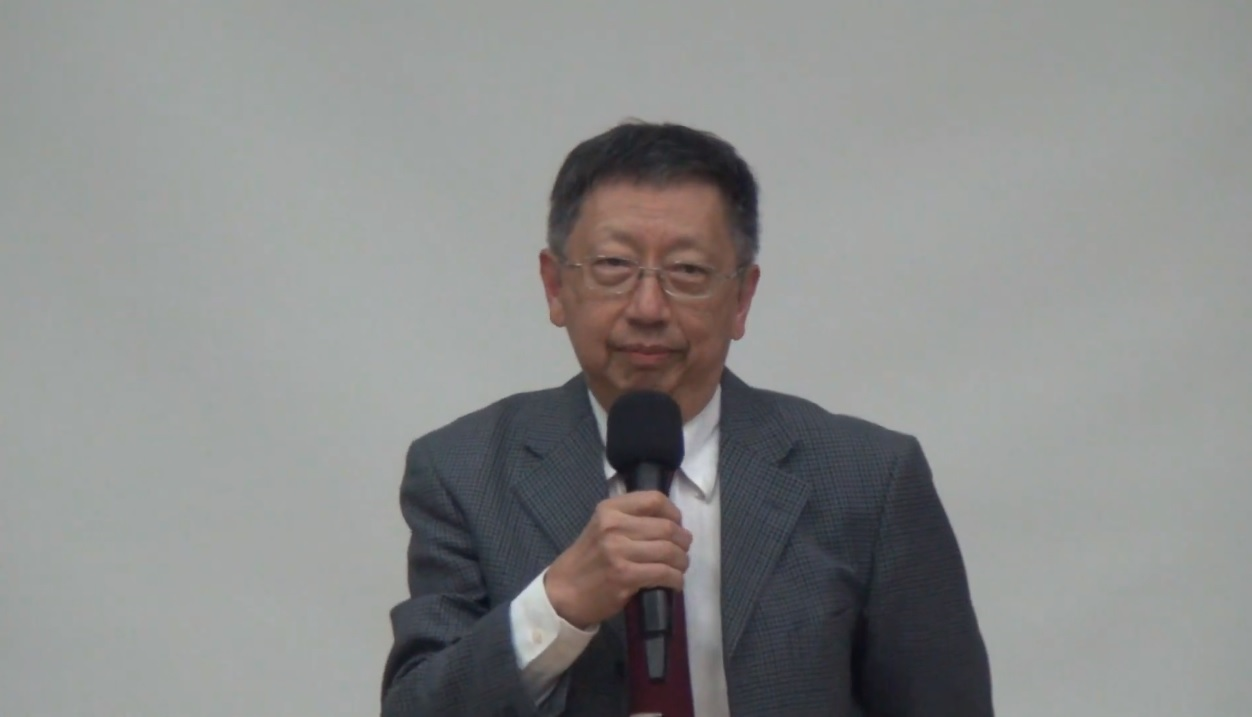
齊正中教授 |
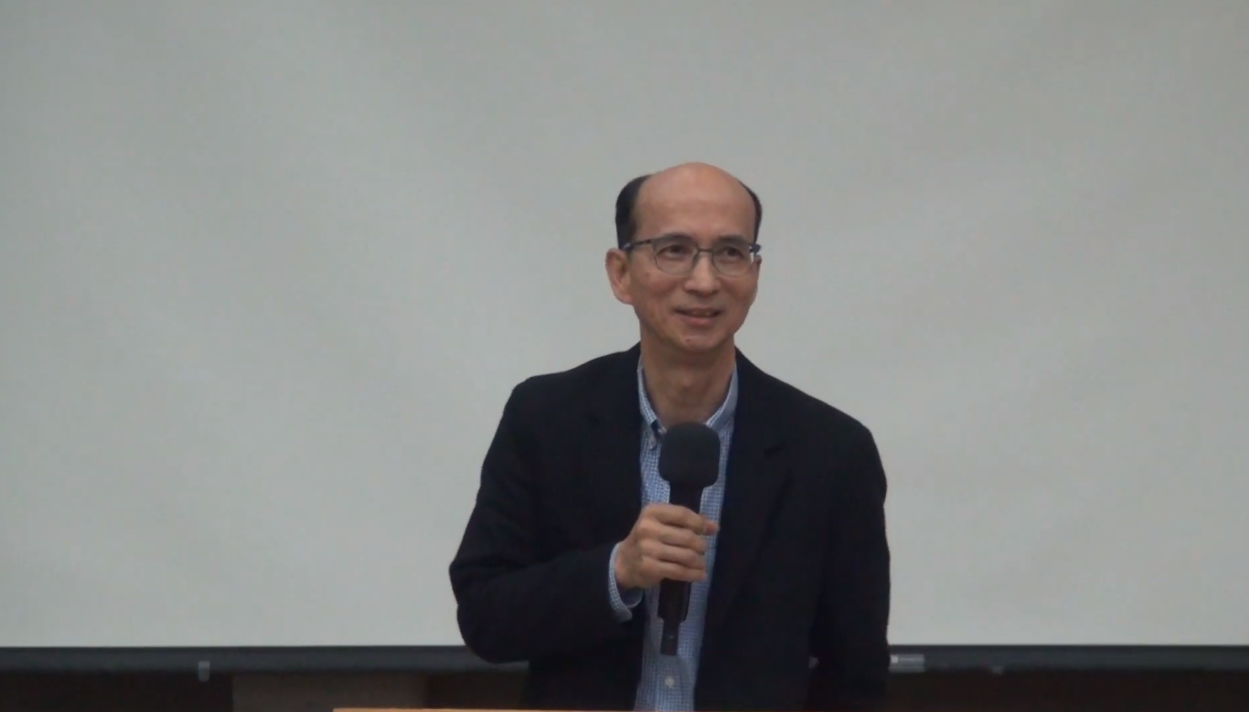
張志義研究員 |
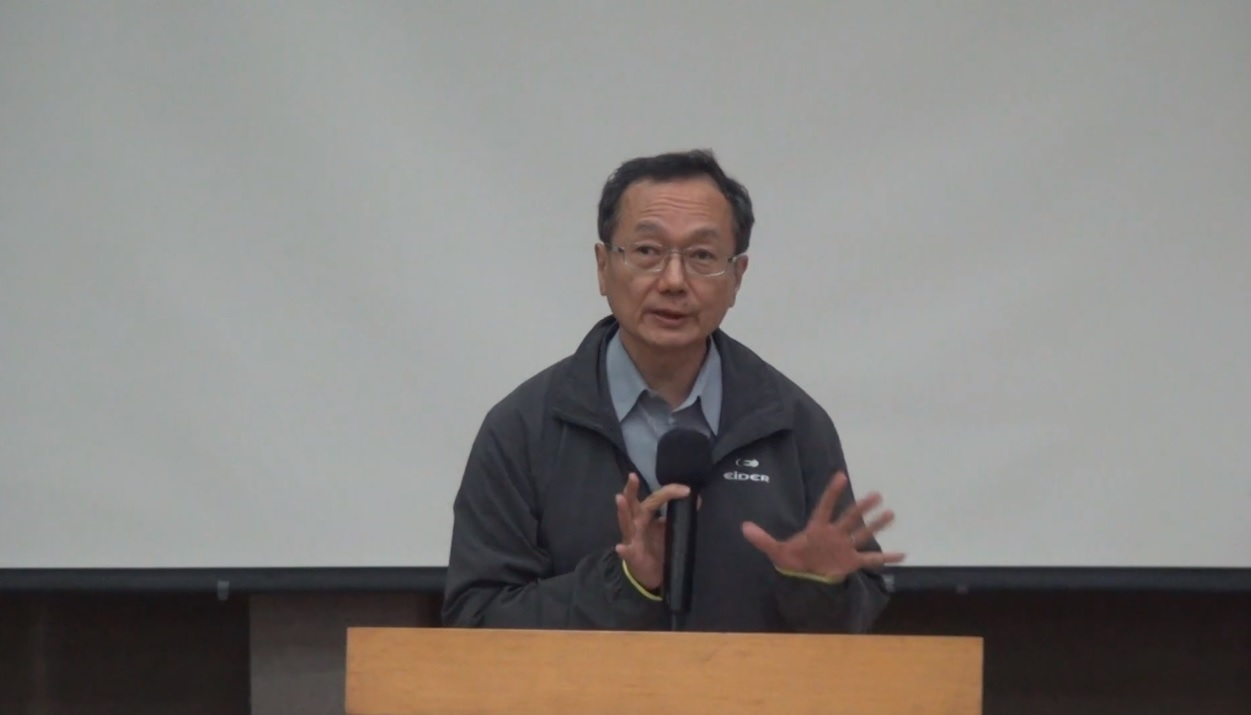
侯維恕教授 |
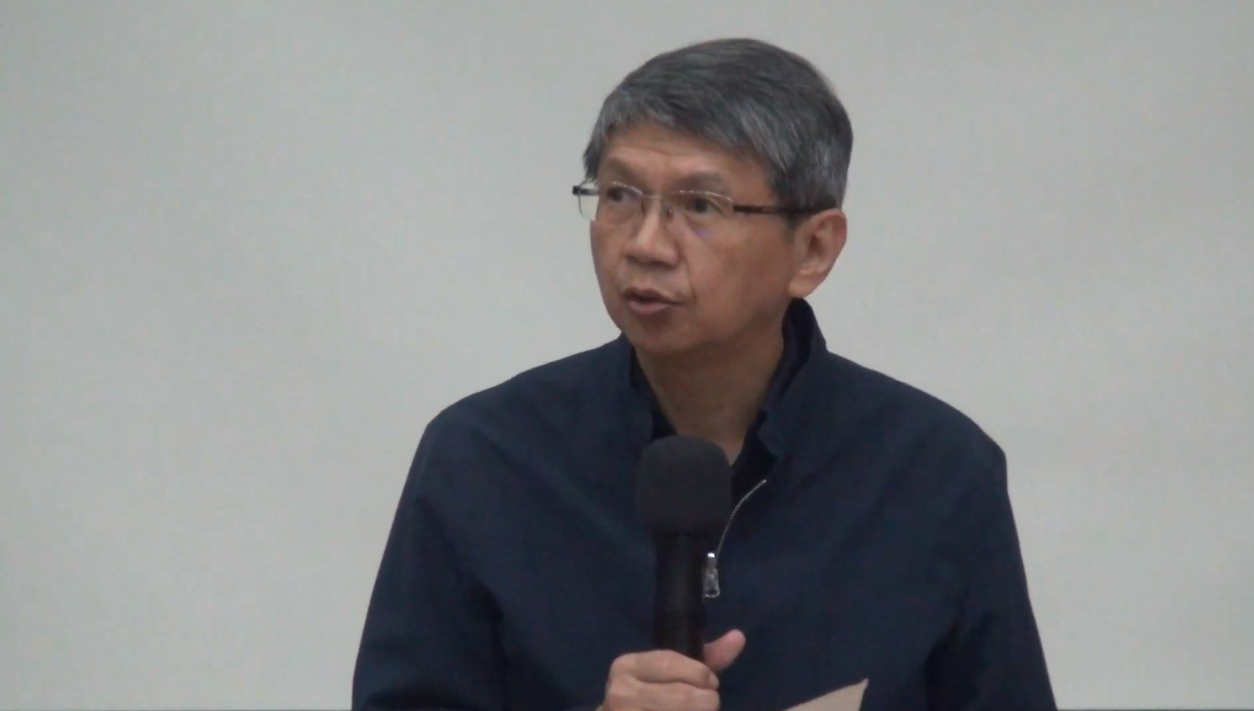
高涌泉教授 |
接著是清大張祥光教授、東海詹傳宗教授、東華劉承邦教授、交大仲崇厚教授等四位曾接受黃老師教導的學者們,也一一上台回憶學生時代在黃老師門下春風化雨的年輕歲月。
會議最後由黃老師的公子Justin Hwang致詞,畫上句點。
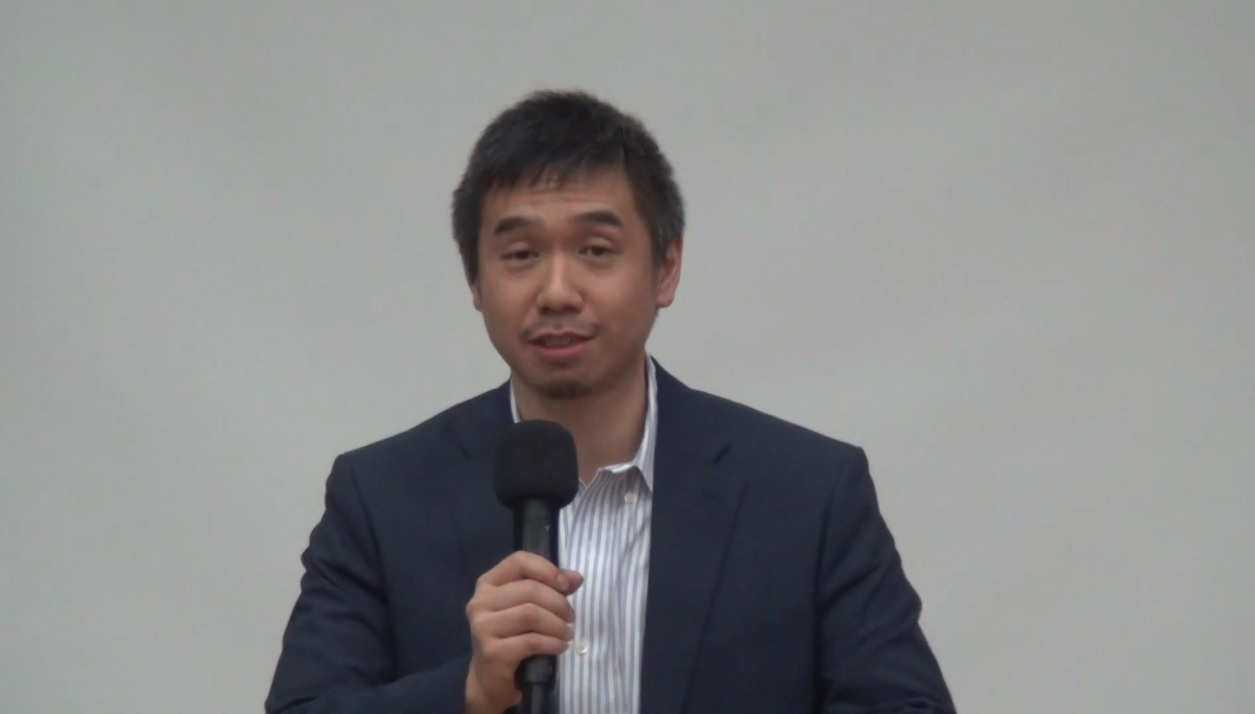
Justin Hwang
以下訃聞由陳俊瑋、陳丕燊、鄭海揚及彭仁傑四位老師共同撰寫,刊登於2018年7月的Physics Today: Woei-Yann Pauchy Hwang, a nuclear physicist turned cosmologist known for his significant contributions in weak interaction physics and in promoting physics research and education in Taiwan and the Asia-Pacific region, died unexpectedly in Taipei on May 6, 2018. Pauchy was born in Miaoli, a rural region in Taiwan, on August 25, 1948. Run over by a truck in an accident, Pauchy lost his right leg at age 10. With tremendous determination and perseverance, Pauchy overcame his severe physical limitations and was admitted to the physics department of National Taiwan University for his undergraduate study. After earning his BS degree in 1971, Pauchy became a doctoral student of Henry Primakoff at the University of Pennsylvania. In a series of three seminal papers, Pauchy and Primakoff presented their pioneering work on using muon capture to test the conserved vector current hypothesis and second class currents. After receiving his PhD in physics at the University of Pennsylvania in 1977, Pauchy became a postdoc of Ernest Henley at the University of Washington from 1978 to 1981. The life-long friendship and collaboration between Henley and Pauchy resulted in over 25 joint publications covering topics ranging from parity violation in weak interactions to QCD sum rules. Pauchy moved to Indiana University in 1981, becoming an associate professor in 1984. He joined National Taiwan University (NTU) as a full professor of physics in 1988. At NTU, Pauchy pursued many different activities with great enthusiasm and style. In addition to supervising a large number of talented graduate students, Pauchy tirelessly initiated and promoted international collaborations. He organized many conferences including the first International Symposium on “Symmetries in Subatomic Physics” in 1994, which has turned into a regular conference series. As a recipient of the Humboldt Fellowship in 1990-91, Pauchy worked with Joseph Speth and Gerry Brown to elucidate the role of meson cloud in describing the flavor asymmetry of nucleon’s sea. Pauchy was very proud of his collaboration with Ta-You Wu, a former teacher of TD Lee and CN Yang, resulting in the publication of the monograph “Relativistic Quantum Mechanics and Quantum Fields” in 1991. Pauchy also played a major role in the advancement of frontier research in theoretical physics in Taiwan, leading to the establishment of the National Center for Theoretical Sciences in 1997. During his 4-year term as the NTU physics department Chair (1997-2001), Pauchy spared no effort to build up a strong department, including the recruitment of 10 junior faculties and the completion of the construction of its new building. In 2000, Pauchy led Taiwan’s astrophysics and high energy physics communities to establish the Center for Academic Excellence on Cosmology and Particle Astrophysics (CosPA). This marked the beginning of a concerted effort in Taiwan to pursue cosmology. As part of the program of this Center, Pauchy launched a new conference series, the CosPA Symposia, in 2002, which, for the first time, provided a forum among cosmology and particle astrophysics colleagues in the Asia-Pacific region, now being held annually in different Asia-Pacific regions. Pauchy suffered a near-fatal stroke in 2004. He fought courageously and recovered remarkably from it. Although he lost control of his right-hand fingers, Pauchy remained active in the next 14 years of his life. Concurrent with the buildup of research in cosmology in the region, the Asia-Pacific Organization for Cosmology and Particle Astrophysics (APCosPA.org) was established in 2011 and Pauchy was elected as its first President (2011-2013). Pauchy’s contribution to promoting physics in Asia-Pacific was not limited to the fields of cosmology and particle astrophysics. As a Council Member of the Association of Asia-Pacific Physics Societies (AAPPS) since its formation in 2001, he served as the Editor-in-Chief of AAPPS Bulletin from 2001 to 2009. In 2013, he initiated a new journal and newsletter, “the Universe”, under APCosPA and served as its Editor-in-Chief ever since. Pauchy received numerous honors. He was elected a Fellow of the American Physical Society (2003), three-time recipient of the Outstanding Research Award (National Science Council), National Chair Professorship (1998-2001), Academic Award of Ministry of Education (2004), NTU University Chair Professor (2006-2018), and many others. Pauchy will be remembered as a remarkable physicist undaunted by severe physical challenges, and as a visionary leader and a devoted promoter of physics in Taiwan and the Asia-Pacific region. He lived up to the name he invented for himself, “Pauchy”, meaning “embracing misfortune” in Chinese. He will be dearly missed by all who had the good fortune to have known and worked with him.